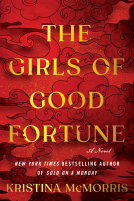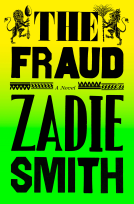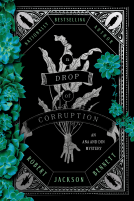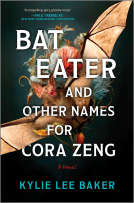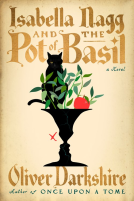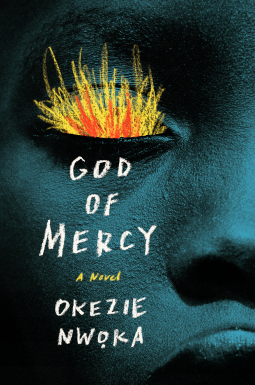
God of Mercy
A Novel
by Okezie Nwoka
This title was previously available on NetGalley and is now archived.
Send NetGalley books directly to your Kindle or Kindle app
1
To read on a Kindle or Kindle app, please add kindle@netgalley.com as an approved email address to receive files in your Amazon account. Click here for step-by-step instructions.
2
Also find your Kindle email address within your Amazon account, and enter it here.
Pub Date Nov 02 2021 | Archive Date Oct 19 2021
Astra Publishing House | Astra House
Talking about this book? Use #GodofMercy #NetGalley. More hashtag tips!
Description
"[God of Mercy] owes a debt to Chinua Achebe’s Things Fall Apart, revising that novel's message for the recent past . . . A well-turned dramatization of spiritual and social culture clashes." —Kirkus Reviews
Homegoing meets Black Leopard, Red Wolf, Okezie Nwọka’s debut novel is a powerful reimagining of a history erased.
God of Mercy is set in Ichulu, an Igbo village where the people’s worship of their gods is absolute. Their adherence to tradition has allowed them to evade the influences of colonialism and globalization. But the village is reckoning with changes, including a war between gods signaled by Ijeoma, a girl who can fly.
As tensions grow between Ichulu and its neighboring colonized villages, Ijeoma is forced into exile. Reckoning with her powers and exposed to the world beyond Ichulu, she is imprisoned by a Christian church under the accusation of being a witch. Suffering through isolation, she comes to understand the truth of merciful love.
Reimagining the nature of tradition and cultural heritage and establishing a folklore of the uncolonized, God of Mercy is a novel about wrestling with gods, confronting demons, and understanding one's true purpose.
Marketing Plan
Major national media campaign including print, radio, and online coverage
Pitch for feature stories and profiles
Excerpt for placement in high impact literary publication
Highlight in literary preview outreach (The Millions, PW, NYT)
Pitch original stories and essays to major literary magazines and online literary sites
Multi-month prepublication campaign on Astra House's socials
Author tour including bookstore readings and literary festivals
Highlight in Astra House newsletter, website
Digital marketing/publicity campaign including features and reviews
Targeted outreach to reviewers, publications focused on debut fiction, Black creators, African diaspora writing, magical realism
Major literary awards submission campaign (NBA, Pulitzer, debut prizes)
Bookseller outreach
Book club campaign with original materials, extensive outreach
ARC giveaways on Goodreads and NetGalley
Library Marketing
Targeted #Bookstagrammer outreach
Available Editions
| EDITION | Other Format |
| ISBN | 9781662600838 |
| PRICE | $27.00 (USD) |
| PAGES | 312 |
Featured Reviews
 Reid B, Reviewer
Reid B, Reviewer
This is a book with its own unique rhythm that I don't mind saying it took me awhile to understand and embrace. Because the payoff is so entirely worth the sense of displacement in the early pages, any struggle I experienced back there on page 20 was well-rewarded on page 220.
This is the story of an Igbo girl in a fictional town in what I presume to be Nigeria, though it could be elsewhere in Africa. She lives in a small village which holds dear the gods of Earth, Sky, and Water. She cannot speak, which causes her to be considered, by her father at least, as defective and a sign of disrepute. When she discovers other skills, many are awed and others are frightened. Her father hopes to restore his good name by taking extreme action to neutralize her influence on his life.
What is magical in this book is the language in which it is written, an English with a certain lilt to it, engendered, no doubt, by the fact that Nwoka grew up speaking both English and Igbo; while his mastery of English is clear, it is his genius to be able to incorporate much of the musicality of Igbo into the other language, a feat of great skill. At first it was a bit off-putting, especially what felt like some very odd word choices and turns of phrase. But what becomes clear is that this self-assured first-time author was extremely intentional in his choices. Not a single word is amiss here, and Okezie Nwoka communicates with great clarity the reality of a life in rural Africa we can only imagine.
One thing is certain that being different makes you stand out and when you stand out, you are threat, often to yourself and most of all to others.
God of Mercy, follows Ijeoma- a young girl from Ichulu, an Igbo village that despite the changing times is still set in their ancestral ways and they still worship and believe in the deities of water, sky and the land. From birth, Ijeoma is feared and seen as an outcast because she cannot talk, and when she starts to fly, her body slowly being lifted off the ground- then her people partly fear her and partly assume that she communicates with the gods. With changing times, colonization at it's peak she finds herself exiled into a Christian community and is labelled a witch and has to grapple with the beliefs of other people- just as she did as a child among her own people.
Reading God of Mercy was like finding a familiar face, friend and neighbor in the busy streets of a foreign country. The language and tradition, dialogue between the characters- was akin to watching afro-sinema ( if I may say so) and it was refreshing. However, there is a lot to unpack, to unravel in this story that transcends religion and culture but moves more to conflicts in beliefs, challenging beliefs and what it means when you are other than what the people around you know.
Thanks Netgalley and the Publisher for the eARC.
 Mark B, Reviewer
Mark B, Reviewer
It is unusual for me to be attracted to fantasy, but I was intrigued by Astra House’s description of “God of Mercy”. It promised to depict worlds as they were, are, and could realistically be.
Okezie Nwoka’s striking debut kept my attention from beginning to end, in multiple ways. It is an homage to oral and written communication, beautifully captured in multiple languages and dialects. It is an education at the highest level in the spirituality and sociology of comparative religions. One cannot help but be struck by how the arrogance and violence of colonial Christian conversion dogma disturb and disrupt organic “of-the-earth” communities, cultures, and belief systems.
The star attraction is Iljeoma who is unable to speak, but able to fly. She is seen as a God by some, as the work of the Devil by others. She dominates every scene. All other characters react and respond knowing that she is something special – out of this world.
I am sure that there were scores of subtilties that I missed and would pick up on during a second, closer reading. I will be on the lookout for Nwoka’s future work. He is clearly a muscular talent, and their future will be a joy to follow.
Thank you to Astra House and NetGalley for the eARC.
a beautifully written exploration on the way religion has been used in colonization through the story of a young girl who can fly and is accused of being a witch.
this is a little slow to start, but once it gets going, it really is engaging. i owe this mostly to the way that the novel is written. the language of it is absolutely beautiful. i didn't particularly care for the diary entries interspersed throughout because you don't really learn what they mean until 3/4 of the way through the story. and the end was a little deus ex machina for my tastes, but not enough to disrupt my enjoyment of the novel as a whole.
i was reminded of Rungano Nyoni's film I Am Not A Witch, for its similar themes of witchcraft and exploitation of young girls. so, if you enjoy that film, i'd rec this book and vice versa.
Overall a beautifully written book. The writing style of this book is so unique and is either going to be love-it or hate-it. I liked the plot of the book and the character of Ijeoma. I learned a lot about Igbo culture. I thought that the journal entries were a bit weird but they were finally explained later on and it made a bit more sense.
 Annie S, Librarian
Annie S, Librarian
Somewhere in Igboland (a region in Nigeria) is the small, remote village of Ichulu. This village has resisted European languages and religions in spite of all outside pressure. Their Igbokwe talks to the gods on the villagers’ behalf, warning them of floods and praying for healing or boons. Life is good. But then a girl who can’t speak aloud begins to fly, which throws everything into question. In God of Mercy, the challenging novel by Okezie Nwọka, we see what happens when two men who are afraid of the wide world twist their traditions to try to control the girl who can fly.
Ijeọma is a sweet, caring girl who can fly in moments where she becomes transfixed by the beautiful, joyous world around her. But, because she doesn’t speak out loud (Ijeọma signs), it’s far too easy for everyone else in Ichulu to project their own thoughts onto her. Her mother sees her as a helpmeet. The Igbokwe thinks she’s a sign of divine favor. Her father, however, can only think of his failures when he looks at his oldest daughter. The more she flies—and the more she rises in everyone else’s esteem—the more Ijeọma’s father resents her. When he breaks, he betrays his family by giving Ijeọma to a Christian preacher who specializes in “curing” children who are different or who act out.
There are hints in the early chapters of God of Mercy about Ijeọma’s fate. Small extracts from a diary begin to appear that reveal the horrific, violent treatment Ijeọma receives after her father’s betrayal. Before long we also leave Ichulu and Ijeọma’s family and the Igbokwe to go to Amalike with Ijeọma, where a man who claims to be Christian but acts like anything but tries to “drive the demons” out of the flying girl for nine years. Just like everyone else in Ichulu, this preacher projects his own version of reality and his own ambitions onto Ijeọma.
The middle of God of Mercy up until the last few pages are very hard to read. The abuse suffered by Ijeọma and the other children being kept by the preacher is among the worst I have ever seen in fiction. I was able to make it through because, first, I just had to know if Ijeọma would make it out, and second, because I was fascinated by what this book showed me about faith. There are many true believers in God of Mercy. In spite of their piety, the villains in this book are the ones who are so committed to following their religions’ rules with unwavering devotion. They never wonder if there can be exceptions or that the spirit of the law is more important than the letter. And they never pause when their interpretation of their religion points them in dark directions. The kindest characters in God of Mercy—the ones I think of as the good characters—are the ones who can grow along with their faith. This book turned out to be a revelatory examination of faith and religion.
 Caoimhe M, Reviewer
Caoimhe M, Reviewer
I requested this book when I read the premise because it sounded like it would be such a gripping read.
God of Mercy is set in Ichulu, an Igbo village where its people worship the gods. This tradition has allowed them to evade the influence of colonialism. But the village is overcome by change due to a war between the gods demonstrated through Ijeoma, a girl who can fly and who is mute. As tensions increase, Ijeoma is forced into exile and is imprisoned by a Christian church as she is accused of being a witch. Through isolation, Ijeoma is forced to examine faith and merciful love.
It took me quite a while to get into this novel. I struggled with the format to begin with. But once I got into it, I couldn’t put it down. It is the story of the uncolonised and resisting colonisation, as surrounding villages are overtaken by Christianity. It is a deep examination of religious conflict. Keeping with tradition vs converting to the coloniser’s religion. Ijeoma is a brilliant protagonist too and as the book goes on, you do become attached to her. When she’s imprisoned, my mind was racing. I found the latter pages incredibly hard to read due to the torture and abuse the colonisers inflicted on the prisoners (a big trigger warning here). But it is a vast reminder of the impact colonialism has had.
Overall, I think this is a brilliant debut novel. Nwoka dives into thought-provoking ideas. They bring about conversation on colonialism and its impact on faith and tradition. I think their debut will be talked about frequently on here in the weeks and months to come.
Thank you to NetGalley & Astra House for allowing me to read this ARC.
Readers who liked this book also liked:
Mary Annaïse Heglar
General Fiction (Adult), Multicultural Interest, Women's Fiction
Kristina McMorris
Historical Fiction, Multicultural Interest, Women's Fiction






